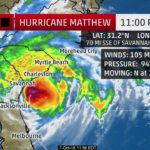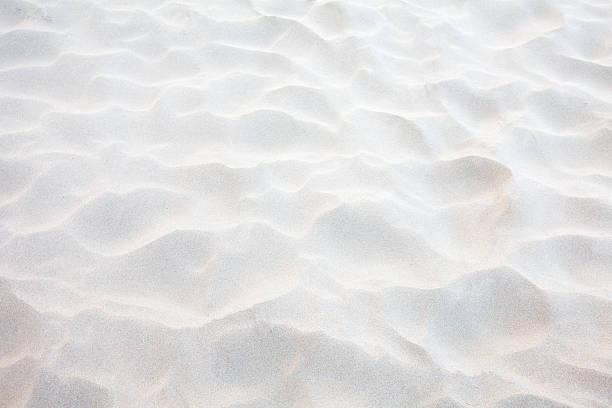 Preparing For Hurricanes and Tornados
Preparing For Hurricanes and Tornados
Preparing for hurricanes and tornados can be difficult. People start to panic and buy up all the essential items so planning a head will get you off to a good start. It’s a good idea to have a stock of all the basics at home. This will save you from scrambling for supplies when there really isn’t time to spare.
Emergency Supply Kit:
- One gallon of water per person per day for at least three days, for drinking and sanitation
- A three-day supply or more of non-perishable food with can opener if needed
- Flashlight and extra batteries
- First aid kit
- Moist towelettes, garbage bags and plastic ties for personal sanitation
- Know what to do and where to go in an emergency
- Take charge of children, family, neighbors who may be elderly or have special needs, and pets
- Know evacuation routes and public shelters in your area
- Have a battery-powered radio and extra batteries
- Freeze Water Bottles. Storms often cause blackouts, but you can keep food safe in your freezer by stocking it with water bottles. The frozen water bottles in your refrigerator will keep your food cool longer
- Fill the bathtub with water and keep the refrigerators and freezers closed
- Keep cell phone charged, use only for emergencies and have a portable charger
- Fill up your car’s gas tank and have your emergency kit ready to go
Severe Thunderstorm Watch vs. Warning:
A Severe Thunderstorm Watch when the atmosphere is favorable for the development of severe thunderstorms. Watch the sky and stay tuned to NOAA Weather Radio, commercial radio or television for information.
A Severe Thunderstorm Warning when severe weather has been reported by spotters or indicated by radar. Warnings indicate imminent danger to life and property to those in the path of the storm.
Tornado Watch vs. Warning:
A Tornado Watch when weather conditions in an area indicate an increased risk for severe weather that may be capable of producing a tornado.
A Tornado Warning when a tornado has been sighted or indicated by weather radar. A warning means you should take shelter immediately.
EVACUATE IF
- Local authorities have told you to
- You live in a high-rise building, hurricane winds are stronger at higher elevations.
- You feel you are in danger
IF YOU CAN’T EVACUATE
- Seek shelter in inner hallway, a smaller interior room, or a closet. Keep away from all windows.
- Close all inside doors and secure and brace outside doors
- Keep curtains and blinds closed
- Do not go outside if the storm dies down; it could be the eye of the storm and winds will pick up again
IF YOU’RE OUTSIDE
- Try to get inside and seek a small protected space with no windows
- Avoid large-span roof areas such as school gymnasiums, arenas, or shopping malls
- If you cannot get inside, crouch for protection beside a strong structure or lie flat in a ditch or low-lying area and cover your head and neck with your arms or a piece of clothing
IF YOU’RE IN YOUR CAR
- Try to drive to the closest sturdy shelter
- Flying debris occurs while you are driving pull over and park.
- Stay in the car with the seat belt on. Put your head down below the windows, covering with your hands and a blanket if possible
- If you can safely get noticeably lower than the level of the roadway, exit your car and lie in that area, covering your head with your hands.
Prepare For Power Outages
WATCH YOUR WATER
After a storm or other natural disaster, public water supplies and private wells may not be safe to drink. Water that is dark, has an odor, or has floating pieces should not be used.
ELECTRICAL WIRES
Strong winds from a hurricane can knock down electrical wires. Some of these wires may be live. If you see a downed wire, DO NOT TOUCH IT as it could shock you and even kill you. Report it to your local police or fire department.
FLOODING
Severe rain during a hurricane could cause flooding which may cause structural damage, mold and loosen asbestos or lead pieces. Roads may be flooded and bridges washed out, so avoid driving in flooded areas.
MOLD
Water damage will cause mold to grow in your home. Porous items that have stayed wet in a home for more than 48 hours should be removed and thrown away. For more information about mold visit:
FOOD
Food may spoil if there is a loss of electricity. Check for and throw away any spoiled food.
INSECTS
Standing water after the storm can be the perfect place for disease-causing insects, like mosquitoes, to lay eggs. Empty out containers with standing water.
Make sure you have a plan if using Medical Devices when power goes out
FOR MORE INFORMATION VISIT:
Recent Posts
- 01 Jun 2025July Myrtle Beach Events
- 01 May 2025For Sale
- 01 Apr 2025Easter 2025
- 24 Mar 20252025 Embassy Pool Memberships
- 01 Mar 2025April Events 2025
- 17 Feb 2025Marshwalk Restaurant Week
- 12 Feb 2025Mardi Gras 2025
- 05 Feb 2025Valentine’s Day Myrtle Beach
- 22 Jan 20252025 Lobby Renovation
- 01 Jan 2025Myrtle Beach Facts Trivia & History
- 18 Dec 20242025 Homeowners New Year’s Day Brunch
- 01 Dec 20242024 Christmas & Holiday Events
- 01 Nov 20242024 November/Thanksgiving Events & Dinner
- 11 Oct 2024Myrtle Beach October/Halloween Events 2024
- 01 Sep 2024Hurricanes in Myrtle Beach
- 08 Aug 2024Planning For Emergencies Hurricanes/Tornados/Storms
- 01 Jun 2024July Events 2024
- 01 May 2024Myrtle Beach PGA Tour 2024
- 18 Apr 2024Kingston Plantation Owners
- 01 Apr 2024Spring Break 2024
- 01 Mar 2024St Patrick’s Day Myrtle Beach
- 01 Feb 2024Myrtle Beach Valentine’s Day 2024
- 01 Feb 2024Super Bowl
- 28 Jan 2024Spanky’s Polar Plunge
- 01 Jan 2024Myrtle Beach History
- 21 Dec 2023The Great Christmas Light Show
- 01 Dec 2023New Year’s Eve 2023/2024
- 24 Nov 2023Christmas Regatta/Yachts For Tots
- 12 Nov 2023Thanksgiving Day Dining
- 04 Nov 2023Coats for Kids Golf Cart Rally 2023
- 01 Oct 2023Halloween 2023
- 01 Sep 2023Myrtle Beach Hurricanes
- 01 Aug 2023Labor Day Weekend 2023
- 01 Jul 20232023 Myrtle Beach Tide Chart
- 06 Jun 20232023 July 4th Fireworks
- 26 May 2023June 2023 Myrtle Beach Events
- 17 Apr 2023Taste Of The Market Common
- 07 Mar 2023Myrtle Beach in April
- 19 Feb 2023National Fire Protection Association Dryer Vents
- 25 Nov 2022Coats For Kids Golf Cart Rally
- 02 Oct 2022Myrtle Beach/Horry County Laws & Rules
- 08 Aug 2022Myrtle Beach City, SC Population
- 01 Jul 2022Myrtle Beach in July
- 01 Jun 2022Myrtle Beach July 4th Celebration
- 01 May 2022Myrtle Beach May Events
- 06 Mar 2022Myrtle Beach St. Patty’s Day
- 01 Mar 2022Myrtle Beach Easter
- 01 Feb 2022MarshWalk Murrell’s Inlet Restaurant Week
- 07 Nov 2021Thanksgiving Dinner 2021
- 01 Oct 2021Myrtle Beach October Events 2021

